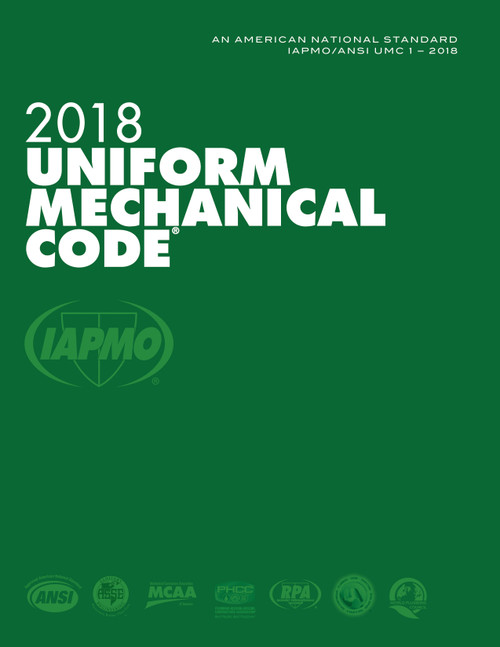The 2021 edition of the Uniform Mechanical Code (UMC®) represents the most current approaches in the mechanical field. It is the seventh edition developed under the ANSI Consensus process is designated as an American National Standards by the American National Standards Institute (ANSI). Furthermore, it addresses specific provisions for low flammability refrigerants such as A2L and B2L; which makes it one of the first codes in the industry to address specific provisions for these low Global Warming Potential (GWP) refrigerants. Contributions to the content of this code were made by every segment of the built industry, including such diverse interests as consumers, enforcing authorities, installers/maintainers, labor, manufacturers, research/standards/ testing laboratories, special experts and users.
The UMC provides complete requirements for the installation and maintenance of heating, ventilating, cooling and refrigeration systems, while at the same time allowing latitude for innovations and new technologies. Key changes to the 2021 UMC include:
New Appendix F – Geothermal Energy Systems
New guards and rails requirements for installation of equipment and appliances on roofs
New ventilation requirements for transient and nontransient occupancies
New ventilation requirements for indoor air quality for residential occupancies
Revisions to the requirements for air ducts, including factory-made air ducts and dampers
New provisions for factory-built grease ducts
New provisions for refrigeration systems, including pressure-limiting devices and hydrostatic expansion
Revisions to the sizing requirements for natural gas and propane piping systems
Modifications to the pressure rating requirements for hydronic piping applications
New requirements for fuel gas piping appliance shutoff valves, test pressure, and overpressure protection devices
New tube fastener provisions for radiant heating and cooling
New requirements for residential compressed natural gas (CNG) fueling systems
New fire-extinguishing equipment and carbon monoxide detection requirements for exhaust systems






